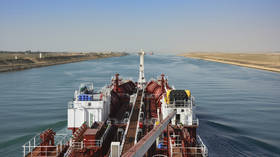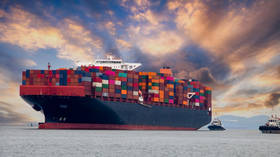Freight via Suez Canal down 45% – UN

Freight through the Suez Canal has plummeted by 45% in the two months since Houthi rebel attacks on vessels in the Red Sea forced shipping companies to divert shipments, sending shockwaves through global supply chains, the UN Conference on Trade and Development (UNCTAD), reported this week.
Jan Hoffmann, chief of trade logistics at UNCTAD, warned that shipping costs have already surged and energy and food costs are being affected, raising inflation risks.
“We are very concerned,” he told reporters. “We are seeing delays, higher costs, higher greenhouse gas emissions.”
Major players in the shipping industry have temporarily stopped using the Suez Canal, a critical maritime trade route connecting the Mediterranean Sea to the Red Sea and a vital sea lane for energy and cargo between Asia and Europe.
Yemen-based Houthi rebels have carried out dozens of drone and missile attacks in the Red Sea since the beginning of the Israel-Hamas war in October.
According to UNCTAD, 39% fewer ships have passed through the canal since the beginning of December, causing a 45% decline in freight tonnage. This has significantly disrupted already strained maritime trading routes.
Hoffmann warned that a number of crucial global trade routes are facing issues, not only due to the attacks in the Red Sea, but also because of the Ukraine conflict and low water levels in the Panama Canal.
“Maritime transport is really the lifeline of global trade,” he said. “These disruptions underline their vulnerability to geopolitics, tensions, and climate changes.”
The Suez Canal handles up to 15% of global trade and about 20% of container traffic. Container ship transits through the canal are down 67% compared to a year ago. The impact on liquefied natural gas has been the largest, as shipments have stopped altogether via the key trade route since January 16, according to UNCTAD.
For more stories on economy & finance visit RT's business section













